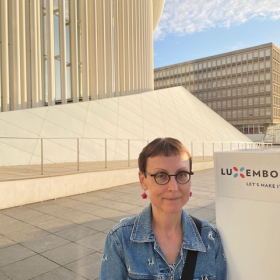

Pirjo L. (Court of Justice of the European Union)
Luxembourg is the place to be for anybody interested in EU Law, since it is the seat of the Court of Justice of the European Union. The Court offers job opportunities and traineeships for people from all the Member States, both with legal and other backgrounds. Did you know that the Court also offers unique ways to make use of your national university degree, such as becoming a lawyer-linguist? As a lawyer-linguist, you make sure that the documents that the Court produces are legally correct in your own language. If you have a law degree from any of the Member States and foreign languages are your thing, you and the Court could be a match made in heaven!
Of course, Luxembourg is so much more than the Court. Indeed, it is easy to fall for this continuously developing and ever-changing gem of a country. It has a multilingual and multicultural population, perfectly organised sports and cultural events, great diversity of restaurants, up-to-date facilities for spare time activities, modern and free public transport system, beautiful landscapes and a fairy-tale capital, the old part of which is a UNESCO World Heritage Site.
Have you ever run a marathon at dusk in a carnival atmosphere, gone hiking in the Ardennes, eaten Gromperekichelcher at Schueberfouer, visited Éimaischen or celebrated Bretzelsonndeg? If not, it is about time to make it happen and come to Luxembourg!

Chrysopigi, Council of the European Union
“Learning foreign languages has always been a passion in my life. As a matter of course, translation became the right career path to follow, enabling me to work in communication across cultures and languages.
My work as a translator at the Council of the EU allows me to practice my craft at the highest level, while serving the community of my fellow European citizens. Translating legislation and European Council conclusions, knowing the effect my work will have on people, is a truly fulfilling experience that has broadened my horizons as a professional.
Without doubt, it feels very rewarding to know that I am doing my part in shaping the future of Europe.”

Charlotte, Council of the European Union
“I joined the English language unit of the General Secretariat of the Council in December 2011, after passing a translators’ competition. At that point, I was translating from French, German and Spanish, and I have since added Portuguese and Czech. I particularly appreciate the variety of work in the English unit. Whereas other units predominantly translate legislation from English into their mother tongue, the English unit translates all kinds of documents from all EU official languages and edits texts written by non-native speakers. Our unit is a very friendly and welcoming place in which to work, with many opportunities for career development and learning new languages.”

Sandra, Graphic Designer (European Parliament)
“Designing for democracy — that’s what drives me every day at the European Parliament. Through visual storytelling, I help make Europe’s voice clearer, fairer, and closer to its people. As a strong believer in human rights and the EU’s mission, I’m proud to turn complex ideas into accessible, engaging content. Working in a vibrant, multicultural environment is deeply enriching — it fuels creativity, broadens perspectives, and reminds me daily of the power of unity in diversity. Here, creativity meets purpose — and every day is a chance to learn, grow, and make an impact.”
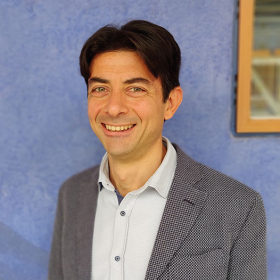
Nicola, European Commission (Eurostat)
"Official statistics are not just dry numbers: they are the lifeblood of democracy. They are essential for policy makers to make informed decisions, as well as to inform citizens on how economies and societies evolve, so that they can form their own opinion.
I am proud to work in Eurostat’s Directorate on Macroeconomic statistics, as the figures we produce – for instance on Gross Domestic Product or Household Price Index (i.e. inflation), just to mention two very well-known macroeconomic indicators –, crucially support the economic policy of the EU."
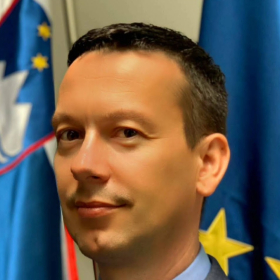
Matija, Council of the EU
“At the Legal Service of the General Secretariat of the Council, I have the opportunity to collaborate closely with colleagues from all EU Member States, working in all EU languages, and contributing to the quality of EU legislation.
As a lawyer-linguist, I especially enjoy working as a quality advisor and ʻchef de fileʼ, overseeing a team of lawyers and other administrators within the Council and from other institutions to legally and linguistically finalise the base language (English) version of legislative files. In these roles, strong coordination and leadership qualities are essential to completing all tasks within tight deadlines.”
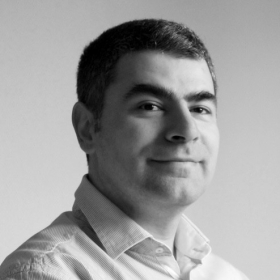
Mihai, Court of Justice of the European Union
“Behind every insightful report or AI model lies an orchestrated effort — governance, architecture, data quality, and the right tools working seamlessly together to turn data into value.
As a Data Project Manager at the Court of Justice of the European Union, I’m proud to help build and strengthen these foundations. Our goal is to create a robust, scalable data ecosystem that not only supports today’s reporting and analytics needs, but also enables innovation, AI, and trusted decision-making for the future.
With the right foundations in place, we ensure that data serves every purpose, making it not just available, but truly valuable.”
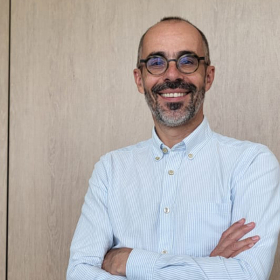
Sébastien, Webmaster (Council of the European Union)
"Since 2009, I’ve managed the Council of the EU’s website, working closely with content creators, designers, and developers to ensure clear communication of the Council’s work.
I publish content, plan new features, and support CMS users across teams. I enjoy the variety — from CMS migrations to developing new content types — and take pride in improving both the user experience and internal workflows.
With a background in international commerce and Chinese studies, I started in digital early, managing web projects in both public and private sectors before joining the Council."

Nelius, European Commission
“Working for the Quality of Legislation (LEG) team at the Legal Service is to be part of a highly professional and inspiring team.
We constantly seek and find the best way to apply drafting rules to exciting aspects of Union life such as the Covid crisis, rules on chemicals, the environment, health and safety protection, and finance. There is a strong reliance on team discussions to achieve the best approach for new situations – and discussions are invariably collegial and fruitful: no colleague is alone, we find solutions together.
On a daily basis, I feel that my colleagues and I are playing a meaningful, useful and vital role in Union law, and in participating in the project of an ever-closer Union, for citizens and businesses, in all 24 languages.”
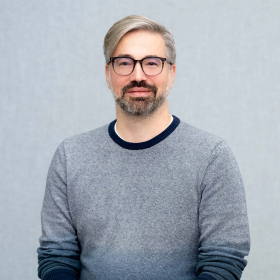
Renaud, Council of the European Union
“Having grown up between Wallonia and Flanders and having later spent ten years as a young adult in Germany, multilingualism and multiculturalism have always been a part of my life. Working for the Council of the EU combines my passion for language, my multicultural background and my profound belief in the European project. My work as a French-language translator is meaningful and directly serves my fellow citizens and my continent. Due to the very political nature of the Council, deadlines are short and flexibility is required, which means our work can be challenging, but also very stimulating and rewarding.”

